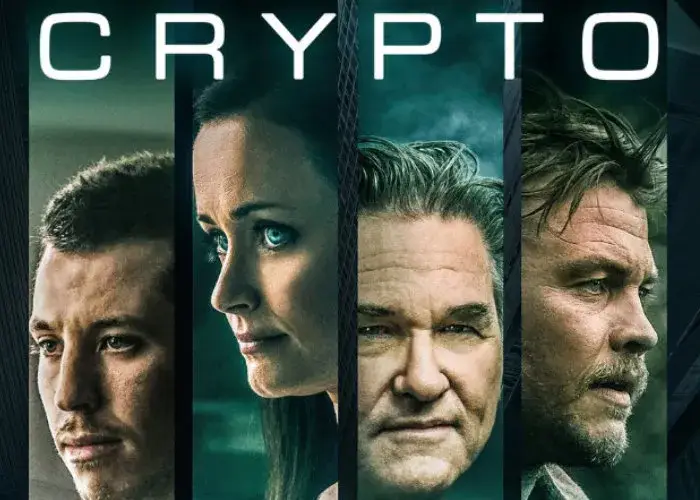Hollywood’s Love Affair with Cryptocurrency
Cryptocurrency has quickly become a pop culture phenomenon, making its way from the dark corners of the internet to the bright lights of Hollywood. Whether it’s being used to fund clandestine operations, serve as the backbone of futuristic economies, or simply as a plot device in a heist, cryptocurrency has become a staple in movies and TV shows.
But how much of what you see on screen is based in reality? Are these portrayals accurate, or are they just another example of Hollywood’s creative liberties? In this post, we’ll dive into some of the most memorable depictions of cryptocurrency in movies and TV and separate the facts from the fiction.
Bitcoin’s Big Screen Debut: A Plot Device for Criminals
One of the most common ways cryptocurrency is depicted in movies and TV is as the currency of choice for criminals. In thrillers and action films, Bitcoin often plays a role in funding illegal activities, from drug deals to arms trading.

Example: “Dope” (2015) In this coming-of-age film, the main characters use Bitcoin to sell drugs online in an attempt to stay out of trouble. The movie portrays Bitcoin as a tool for avoiding law enforcement, thanks to its perceived anonymity.
Fact vs. Fiction: While Bitcoin is indeed used by some for illicit activities, the notion that it’s completely anonymous is a misconception. Bitcoin transactions are recorded on a public ledger called the blockchain, which can be traced back to users if certain information is known. Law enforcement agencies have become increasingly adept at tracking Bitcoin transactions, making it less of a safe haven for criminals than movies suggest.
The Rise of Blockchain: Futuristic Economies and Dystopian Worlds
Blockchain technology, the backbone of cryptocurrency, is often depicted as the foundation of futuristic economies in dystopian worlds. In these portrayals, blockchain is more than just a financial tool—it’s a way of life, controlling everything from currency to identity verification.

Example: “Altered Carbon” (2018) In this sci-fi series, digital consciousness can be stored and transferred between bodies, with blockchain technology serving as the basis for this society’s currency and data management.
Fact vs. Fiction: While blockchain has the potential to revolutionize various industries, we’re still far from the kind of all-encompassing, society-wide use depicted in Altered Carbon. Blockchain’s most practical applications today are in finance, supply chain management, and digital identity verification. The idea of blockchain controlling entire societies remains firmly in the realm of science fiction—for now.
Cryptocurrency Heists: The New Gold Standard in Theft
With the rise of digital currencies, it was only a matter of time before they became the target of elaborate heists in movies and TV. These portrayals often involve hacking into secure networks to steal vast sums of cryptocurrency, with thieves bypassing traditional banks entirely.

Example: “StartUp” (2016-2018) This drama series revolves around the creation of a new cryptocurrency called GenCoin. As the story unfolds, characters are involved in various criminal activities, including hacking and theft, all centered around digital currencies.
Fact vs. Fiction: Cryptocurrency theft is, unfortunately, very real. High-profile hacks and scams have resulted in billions of dollars in losses. However, the reality of hacking into cryptocurrency networks is far more complex and difficult than TV shows make it seem. Blockchain technology is designed to be secure, and while exchanges and wallets can be vulnerable, the networks themselves are not easily breached.
Cryptocurrency as the Future of Money
In some films and TV shows, cryptocurrency isn’t just a plot device or a tool for criminals—it’s the future of money. These portrayals often depict a world where traditional fiat currency is obsolete, replaced entirely by digital assets.

Example: “Crypto” (2019) This financial thriller features a world where cryptocurrency is taking over Wall Street, with characters navigating the murky waters of money laundering and financial corruption, all centered around digital currencies.
Fact vs. Fiction: Cryptocurrency has certainly made a significant impact on the financial world, but we’re not at the point where it’s replacing fiat currency. While some countries and businesses have started to accept cryptocurrency for transactions, the majority of the global economy still operates on traditional money. Cryptocurrency’s volatility and regulatory challenges make it unlikely to fully replace fiat in the near future.
The Myth of Anonymous Transactions
Hollywood loves to portray cryptocurrency as a way to make completely anonymous transactions, free from the prying eyes of governments and corporations. This myth is pervasive, leading many to believe that digital currencies offer total privacy.

Example: “Mr. Robot” (2015-2019) This popular series follows a hacker group as they attempt to take down corrupt corporations, often using cryptocurrency to fund their operations without being traced.
Fact vs. Fiction: As mentioned earlier, Bitcoin and many other cryptocurrencies are not anonymous but pseudonymous. All transactions are recorded on the blockchain, which means they can be traced with enough information. There are privacy-focused cryptocurrencies like Monero and Zcash that aim to offer greater anonymity, but even these are not entirely untraceable. The idea of total anonymity in cryptocurrency is more fiction than fact.
Separating Fact from Fiction in Crypto’s Hollywood Cameo
Cryptocurrency and blockchain technology have become the darlings of Hollywood, appearing in everything from indie films to blockbuster TV series. While these portrayals can be exciting and thought-provoking, it’s important to separate the facts from the fiction.
In reality, cryptocurrency is still in its early stages, with many of its potential applications yet to be fully realized. While it does offer new ways to manage and transfer value, the myths of anonymity, ease of theft, and its role as the universal currency of the future are often exaggerated.
As you watch your favorite shows and movies, keep in mind that while cryptocurrency makes for great entertainment, the truth is often a bit more complex—and a lot less dramatic.



